
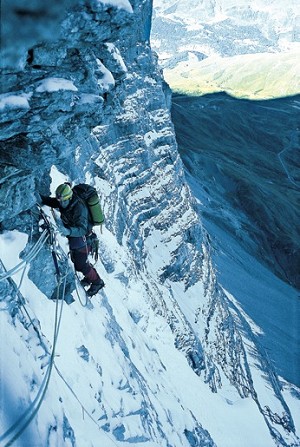
From StephenVenables.com:
Stephen Venables, mountaineer, writer, broadcaster and public speaker, was the first Briton to climb Everest without supplementary oxygen. He reached the summit alone, after climbing with a small American-Canadian team, by a new route up the gigantic Kangshung Face.
Everest was a thrilling highlight in a career which has taken Stephen right through the Himalaya, from Afghanistan to Tibet, making first ascents of many previously unknown mountains. His adventures have also taken him to the Rockies, the Andes, the Antarctic island South Georgia, East Africa, South Africa and of course the European Alps, where he has climbed and skied for over forty years.
Here Stephen answers some questions for UKClimbing.com about his life, his views on mountaineering and of course, what he thinks about Everest.
Looking back, how do you view the young Stephen Venables?
I was rather shy and awkward on the outside, but consumed inside by big dreams and enthusiasms. From the age of about seventeen, those dreams included climbing.
Would you view yourself as an ambitious climber?
I alternate between extremes of idle indifference and intense ambition. Climbing is ultimately ignoble – it is about self-indulgent pleasure. But pursuing that pleasure can involve moments of discomfort, fear and hard graft; and few things can beat the satisfaction of completing a big epic climb.
When I started in the early seventies I certainly aspired to beautiful hard climbs up big mountain walls. When I first saw a picture of the Walker Spur, I wanted immediately to climb it (and I still haven't!). When I heard about the things people like Dick Renshaw and Joe Tasker were doing, I wanted to do those kinds of climbs too. And when Lindsay Griffin said one day, 'do you want to come to the Hindu Kush?' I didn't even have to think about it.
So, yes – I have had my ambitious moments and I would still like to get good enough to lead Great Wall. Without my usual recourse to cheating when I get frightened!
Can you link any childhood events that had a steering effect on you as a climber?
Nothing specific – just a drip feed of subliminal influences: first misty scramble up Crinkle Crags, finding my own boulder problems in Wales, skiing in the Alps, reading James Ramsay Ullmann's fictional Banner in the Sky.
Perhaps the thing which whetted my appetite most was going with Parisian friends to Fontainebleau when I was sixteen. At the end of that week I watched them packing all their climbing gear to go south to the Alps, and I wished that I was going too.
Do you feel that you are defined by your Everest climb, and if so how does that make you feel?
I sometimes feel like holding up my hand and saying, 'Hey, I have climbed some other mountains, you know.' Everest has the advantage of brand recognition – which is useful when you're trying to flog books and get lecture bookings – and it was very thrilling to climb a new route up the world's highest mountain with a brilliant small team. However, it was my tenth Himalayan expedition and I have done other trips since!
How has climbing changed you?
One smashed knee, a crushed heel, cracked ankle, dislocated shoulder, missing toes ... I've learned a lot about hospitals. Perhaps if I hadn't got involved in climbing I would have found a good job, made lots and lots of money, and now be looking forward to a comfortable, prosperous, non-arthritic retirement. But perhaps I might also regret not having had those great adventures. I don't know how much it's changed me, but it – particularly rock-climbing and ski mountaineering – remains a source of huge pleasure.
How would you compare the world view of Stephen Venables soloing towards the summit of Everest and Stephen Venables climbing towards a virgin Summit on South Georgia?
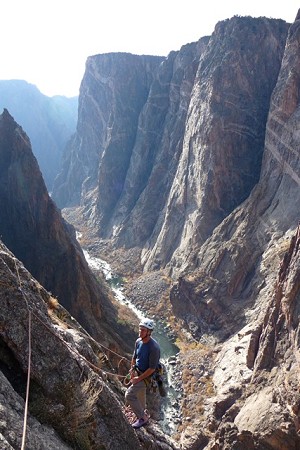
Even though we fought a very risky expensive war to regain South Georgia (and the Falklands) most people – even British people – don't know where those islands are. Let alone realize that they boast beautiful unclimbed mountains.
As for the Himalaya, Joe Public seems to think it's like a little bit of Snowdonia with one bloody great mountain sticking up in the middle. They have no concept of the infinite richness and variety of mountaineering. I do think it's a shame that the Everest obsession – and puerile 'reality' television – distracts the public's attention from all the brilliant achievements of our best climbers on other, more interesting, rocks and mountains.
How important is climbing literature to both you and all climbers.
I can only speak for myself. Climbing is so much about dreaming and wondering and imagining possibilities, that for me – particularly when I was first getting hooked on this crazy pastime, living far from the hills in Surrey – books helped feed my appetite and informed my ambitions.
Shipton, Gwen Moffat, Winthrop Young, Pilley, Bonington, Diemberger ... they've got a lot to answer for! But I think books are also a great way – infinitely more real than television – for climbers to tell their stories to a wider audience.
I don't think climbing's really a sport, and it's certainly not a spectator sport, so writing is a wonderful way of attempting to tell the stories and share something of our huge experiences. I was very pleased, after my first book Painted Mountains came out, when one of my brothers said, 'Now I know why you go climbing.'
How do you view the huge changes in mountaineering (media, equipment, grades, fitness) since you began?
When we did Zero Gully in 1975 – when it was still considered quite a respectable climb – I used my mother's ice axe with its very marginally angled pick, one of those stubby little knuckle-wrecking Salewa ice hammers and my bendy non-adjustable Grivel crampons, identical to the first front-point crampons of the Thirties. The gear was fine for that and for more intricate mixed climbing. However, I will concede that the stuff they're making now is a bit more user-friendly and confidence-boosting. Ditto rock climbing gear. It's very nice, as you get older and more cowardly, to be able to stick in ever more protection.
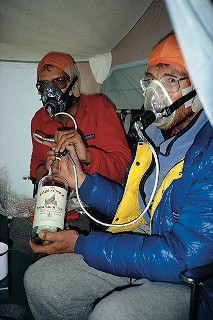
The elite are still doing amazing things, but I'm not so sure about the rest of us rank-and-file weekenders. I do get a bit depressed by the increasing 'commodification' of climbing – the glib packaging of safe, predictable, polished, topoed, bolted, theme-parked instant gratification. That's why I admire so much all those dedicated watchdogs who have stopped our British mountain crags and sea cliffs being turned over to the Health and Safety Brigade.
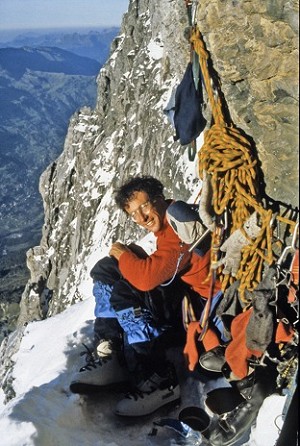
STEPHEN VENABLES Lecture Tour March - May 2010
In Spring 2010, mountaineer Stephen Venables will be bringing one of the greatest legends of exploration alive in his lecture show In the Steps of Shackleton, kindly sponsored by outdoor brand Mountain Equipment and leading adventure travel specialists World Expeditions.
The first Briton to climb Everest without supplementary oxygen back in 1988, Stephen has enthralled audiences with stories of his adventures for over forty years. In the last ten years, he has twice repeated Sir Ernest Shackleton's famous crossing of South Georgia. One of the great epics of exploration, Shackleton's treacherous expedition to cross Antarctica via the South Pole is a tale of escape and survival more miraculous than any fiction. Forced to set out in a lifeboat in search of help after his ship was crushed in the Antarctic ice, Shackleton made a sixteen day voyage 800 miles across the Southern Ocean. On reaching South Georgia, he and his companions continued on foot with no mountaineering equipment and minimal supplies, crossing thirty miles of unknown, unmapped glacial mountains. They finally reached the whaling station of Stromness where they were able to summon a successful rescue for their remaining 22 companions marooned on board the ship.
Using his highly acclaimed photos of his own expeditions to South Georgia and his natural gifts as a storyteller to illustrate this treacherous journey, Stephen aims to capture the thrill of climbing, skiing and sailing in a place of such haunting beauty.
“Stephen is a superb lecturer - his slide shows are brilliantly illustrated, fast-paced, gripping, witty and full of fascinating historical background.” Sir Chris Bonington
DATES & VENUES (please note there are no Scottish dates as Stephen is currently touring around Scotland giving some talks with the Scottish Royal Geographical Society.)
MARCH
Fri 5 WARRINGTON Parr Hall 01925 442345
Sat 6 LLANBERIS Mountain Film Festival 01286 870327/ 01286 871534
Sat 13 TUNBRIDGE WELLS Assembly Halls 01892 530613
Tues 16 BARROW-IN-FURNESS The Forum 01229 82 00 00
Thurs 18 CARDIGAN/ABERTEIFI Theatr Mwldan 01239 621200
Tues 23 EPSOM Epsom Playhouse 01372 742555
Wed 31 SOUTHSEA The King's Theatre 02392 828282
APRIL
Thurs 15 SHREWSBURY Shrewsbury Theatre 01743 281 281
Mon 19 WORTHING Pavilion Theatre 01903 206206
Tues 20 LONDON Royal Geographical Society 0114 2508048
Thurs 22 DERBY Assembly Rooms 01332 255 800
Fri 23 SOMERSET Strode Theatre 01458 442846
Mon 26 KESWICK Theatre by the Lake 017687 74411
Thurs 29 ANDOVER The Lights 01264 368368
MAY
Sat 1 LOUGHBOUROUGH Town Hall 01509 231 914
Tues 4 MALVERN Malvern Theatres 01684 892 277
Wed 5 EASTBOURNE Congress Theatre 01323 412 000
Fri 7 STANLEY Lamplight Arts Centre 01207 218894
For more information and to book tickets online, please visit www.speakersfromtheedge.com

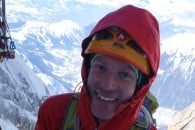

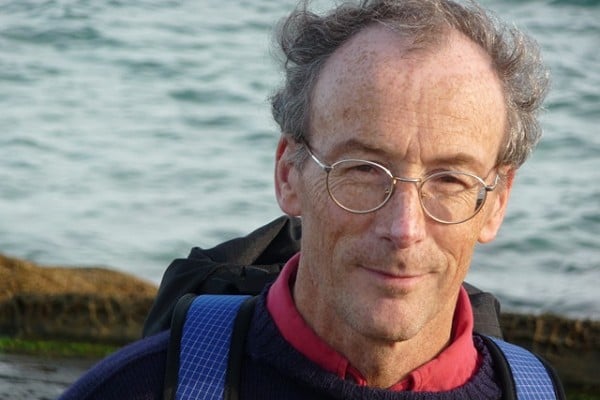
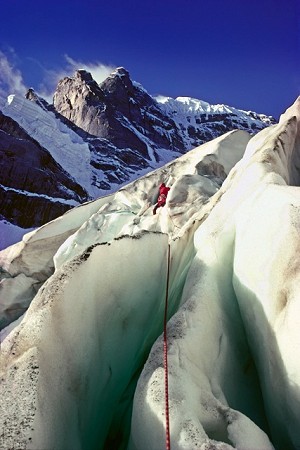

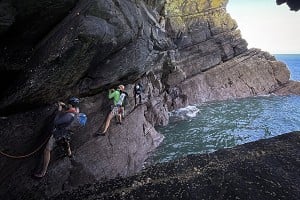





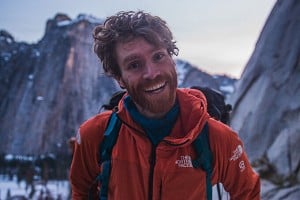
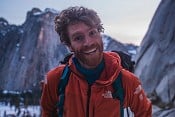
Comments